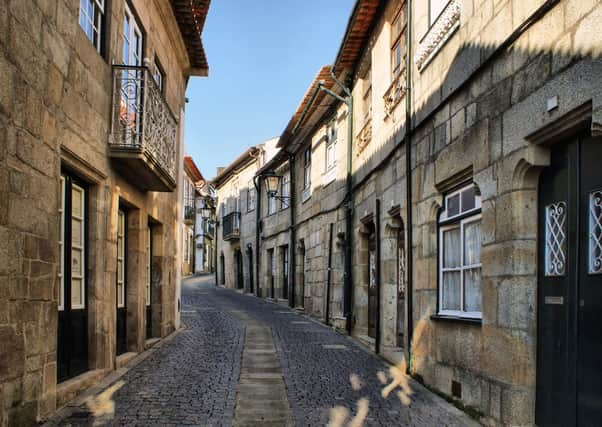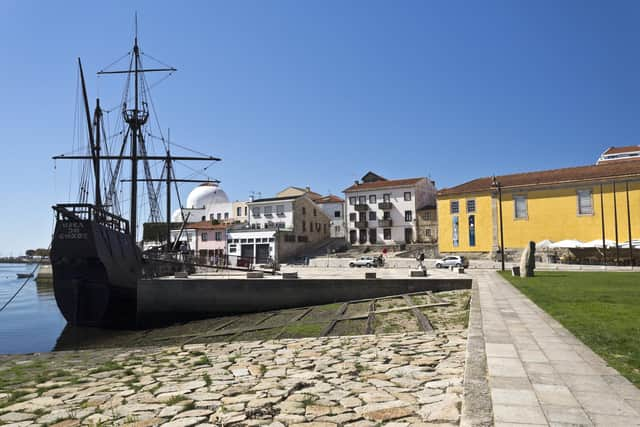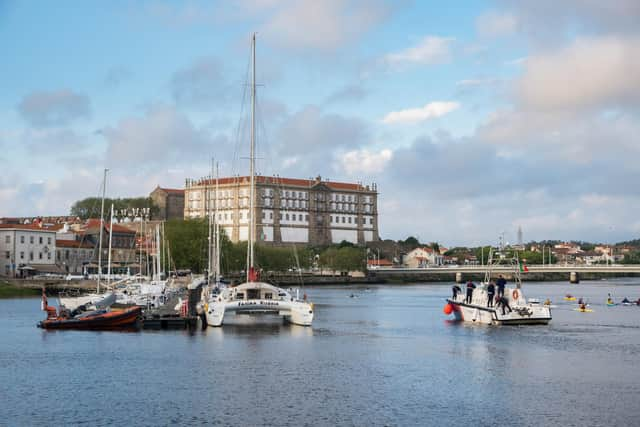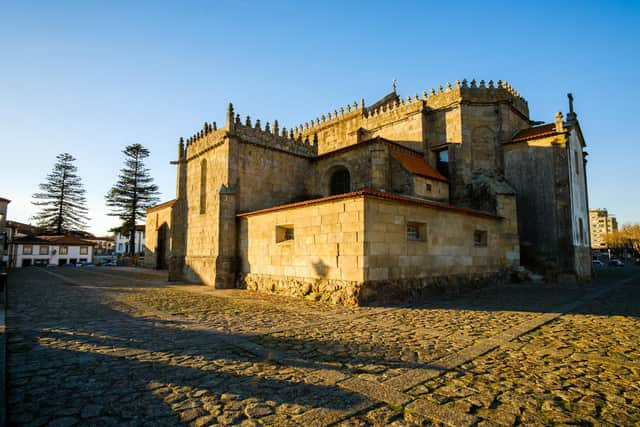Portugal travel: Why Vila do Conde and the coast north of Porto have much more to offer than just sun and sand


When you include a couple of children and a few kayaks, the adventure becomes a bit less tranquil, far more energetic and much wetter.
We were on the Ave river in Vila do Conde, a picturesque town just 15 miles north of Porto – our base for a long weekend in Portugal.
Advertisement
Hide AdAdvertisement
Hide AdAs our kayaking teacher told us how to keep the boat straight and row against the current, we navigated the river towards and then back from the Atlantic, spending an hour or so getting to grips - and for my two children, getting soaked.


Vila do Conde is situated at the mouth of the Ave and is said to be one of the oldest settlements in northern Portugal. It was an important salt exporter in Roman times and later a shipbuilding town, assembling vessels for Portuguese expeditions into Africa, Asia and South America.
A replica of one of these 16th century boats is moored on the Ave, giving visitors the chance to discover the kind of vessel built in the town. The old Customs House is also now a museum where you can discover more of its maritime history.
Away from the riverside, narrow cobbled streets with tall blue and white tiled homes combine with broad tree-lined avenues and grand villas in a town that is now turning to tourism rather than seafaring for its industry.
Advertisement
Hide AdAdvertisement
Hide AdAfter we had dried off we headed for one of the many street cafes and for a bite to eat while sitting in the warm spring sun, enjoying the history and soaking up the atmosphere down by the riverside.


There are also plenty of restaurants and bars offering food throughout the day and into the night – we later joined the locals to experience what Vila do Conde has to offer after dark.
For a bird’s eye view of Vila do Conde and the Ave, a climb up to the imposing Monastery of Santa Clara is a must. From here you can see the tiled roofs of the town, Santa Clara Church and out along the river towards the Atlantic.
There are plans to convert the monastery into a hotel to bring more tourists to the town.
Advertisement
Hide AdAdvertisement
Hide AdThe site is also at the end of the town’s most impressive structure - the Santa Clara Aqueduct, which stretches for two-and-a-half miles and is said to be the second largest in Portugal.


Just up the coast is the bustling town of Povoa de Varzim – a modern and developed resort but without Vila do Conde’s history or sights. The following day we took the metro north, enjoyed a spot of lunch and some shopping in its narrow streets and then walked back along the golden sands, past the Forte de São João Baptista - looking out to the Atlantic from its platform of rock right on the beach.
Vila do Conde’s beaches are seen as some of the best in northern Portugal, stretching for 11 miles.
The stretches of golden sand combine with rocky outcrops and pools to create a ideal spot for families and sun seekers alike.
Advertisement
Hide AdAdvertisement
Hide AdHeading back inland, Vila do Conde is a great base for visiting some of the less well-known areas of the region as well as the World Heritage city of Porto.
Just a 30-minute drive east is the historic and lively city of Braga which was built more than 2,000 years ago and a hugely important administative centre in the Roman Empire.
Travel north and you come to what has been described as one of the most beautiful cities in the north of Portugal – Viana do Castelo. Located at the mouth of the river Lima with its extravagant religious buildings and plazas, the town is also known for traditions including its filigree gold work.
Portugal’s culture, history and sights are often forgotten in a country known more for its lively bars and beaches. But a holiday soaking up the atmosphere away from the sun-seeking crowds shows a place which has far more to offer and for many remains unexplored.
What are the entry requirements for Portugal?
Advertisement
Hide AdAdvertisement
Hide AdUK visitors are allowed to travel to Portugal for any purpose, but must complete an online passenger locator card before arrival.
It is a requirement for travellers entering mainland Portugal from the UK to show a negative test result, or an NHS or EU Covid recovery certificate. This rule does not apply to children aged 11 and under.
Travellers can take an RT-PCR or antigen (lateral flow) test before travel, providing the tests meet the following criteria:
the test is carried out by a trained healthcare professional. Self-administered tests are not acceptable antigen tests must be taken within 48 hours of departure and must meet the standards set out in the EU common list of Rapid Antigen Tests RT-PCR tests must be completed within 72 hours of departure
Advertisement
Hide AdAdvertisement
Hide AdThe NHS testing service should not be used to facilitate travel to another country. Travellers must arrange to take a private test.
The Portuguese authorities can deny your entry to Portugal if you do not have an appropriate Covid test certificate.
The certificate must contain the information set out in Annex II of the EU common list of Rapid Antigen Test, which includes:
your name, date of birth and passport number the type of test taken and the date and time the sample was collected the date of the result and the name of the testing facility or centre and responsible clinician
Advertisement
Hide AdAdvertisement
Hide AdOn arrival in Portugal, travellers will be asked to show their Covid-19 test result or recovery certificate to immigration or security staff and have their temperature screened.
If it is 38ºC or above, or you show signs of being unwell, you may be required to take a Covid-19 test and remain at the airport until you receive your test result.